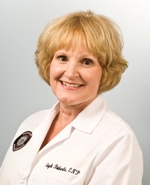What to Do About the Flu
By Gayle A. Roberts, CNP, MSN, RN
January 6, 2015Here we are again in another flu season. This year the Centers for Disease Control (CDC) have reported that flu activity is at high levels in half of the U.S. with Ohio reporting moderate levels. This year’s flu is very serious, causing hospitalizations and even deaths, especially in high-risk individuals. Locally, as of January 6, 2015, Trinity Hospital Twin City’s Emergency Department is reporting higher rates of emergency visits related to the flu. Hospital emergency department doctors are treating a lot of flu patients with fairly high fevers of 102 and above.
What is the flu? The flu is a “very catchy” respiratory illness caused by a virus (not to be confused with what is commonly known as the “stomach flu,” click here for a link to a story about stomach flu). It is spread by droplets which are released into the air from someone with the virus who coughs or sneezes. Flu is also spread by touching surfaces such as counter tops, phones and computers that were touched by a sick person. Those who are over the age of 65, infants and children, those with a weakened immune system (including people with chronic conditions such as asthma, lung disease, heart failure, diabetes), and pregnant women are at high risk of getting the flu and of having complications that could be serious. Complications can include pneumonia, bronchitis, sinus and ear infections.
You can best avoid getting the flu by getting the flu vaccine which is still available at your Trinity Medical Group health care provider (HCP) or at many local pharmacies. It is safe for pregnant women to get the vaccine.
You can also avoid the flu by staying away from crowded places, or sick people. Hand washing or using hand sanitizer is the best defense against any virus or infection. If you sneeze or cough, cover your mouth and nose, and ask others to cover their coughs as well. Discard tissues frequently and wash food utensils in the dishwasher or in hot soapy water. It is good to disinfect (I use bleach) countertops and other surfaces at home, school or work.
If you are sick, stay at home. Go out only if it is to seek medical care and then, if you can, wear a mask. Do not go to work if you are sick as this will only spread the flu to others. A person infected with the flu can spread the illness one day before symptoms of the flu show up and then for 5 to 7 days after being sick. This means a person can pass on the illness before and after being sick.
Symptoms or signs of the flu start one to four days after the virus enters the body. The flu is not a cold. Colds usually start gradually and do not cause a fever. The signs of the flu are sudden and may or may not include a fever (temperature over 99.6 degrees). Other signs of the flu include chills, cough, sore throat, runny and/or stuffy nose, body aches, tiredness, headache and diarrhea and/or vomiting, especially in the young. Not everyone will have all of these symptoms. In most cases people recover from the flu in a few days to two weeks.
If you do get sick, rest at home. Drink plenty of liquids to stay hydrated and to thin mucous from the nose or throat. Tylenol or Ibuprofen can be used as directed by your HCP for body aches and fever. Other over the counter medications advised by your HCP may be helpful to decrease the symptoms. Antiviral medication, which lessens the duration and symptoms of the flu, can be ordered by your HCP, but they work best if taken in the first 48 hours after the flu strikes.
Most people will recover from the flu without any need for medical treatment. If you are in one of the high risk groups for complications of the flu (those who have asthma, diabetes, heart failure, lung disease, weakened immune system, or are a pregnant mom, infant, child or person older than 65), be aware of your risk and seek immediate care if your flu symptoms seem worse than usual. An example of a symptom that may be considered worse than usual is having more difficulty breathing than you do on a typical day. Do not hesitate to seek advice or care from your Trinity Medical Group HCP for any questions or concerns you have about the flu.
Seek immediate medical treatment if you have any of the following symptoms: fast breathing, shortness of breath or difficulty breathing, pain or pressure in the chest or abdomen, severe persistent vomiting, confusion, a concern that you are getting worse instead of better, trouble staying awake or are less interested in what is happening around you, a fever and a rash. For very young children, seek immediate treatment if an infant or toddler is irritable, crying and unable to be comforted by holding. Seek care if you seem to get better from the flu but then a fever and cough comes back as this could be pneumonia or bronchitis.
Flu can cause dehydration or loss of fluids in the body, which can be very serious. The elderly, infants and children are at high risk for dehydration. Seek immediate medical care if any of the following are true: If you are not drinking enough or cannot drink fluids, if you are not urinating normally or if an infant or child has less wet diapers than usual.
For most of us, the flu will be a not-so-nice inconvenience. For some, it can be serious. Keeping informed is a great way to stay and keep healthy. Happy healthy New “no flu” Year to you all!
Gayle A. Roberts, CNP, MSN, RN is a retired nurse practitioner and college nursing professor who volunteers for Trinity Hospital Twin City.
« Back to Learning Center



